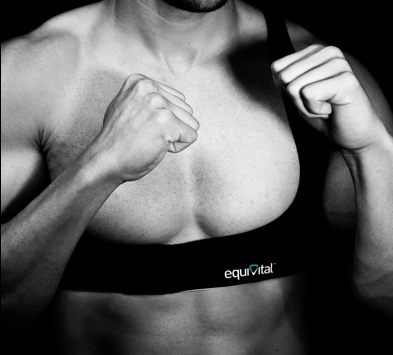 Companies like BodyMedia, Fitbit, and Withings provide wearable trackers for customers to gather data about their health as they live their everyday lives. British company Equivital, whose CEO Anmol Sood appeared at CES on a panel with CNN's Dr. Sanjay Gupta, is focused on using wearable body monitors in extraordinary situations. Australian firefighters and space jumper Felix Baumgartner are two high-profile examples.
Companies like BodyMedia, Fitbit, and Withings provide wearable trackers for customers to gather data about their health as they live their everyday lives. British company Equivital, whose CEO Anmol Sood appeared at CES on a panel with CNN's Dr. Sanjay Gupta, is focused on using wearable body monitors in extraordinary situations. Australian firefighters and space jumper Felix Baumgartner are two high-profile examples.
The most headline-grabbing component of Equivital's body monitoring system is an ingestible capsule sensor which measures core body temperature and transmits that result on a shortwave radio frequency. The capsule itself isn't Equivital's invention, nor is it new. It was first developed under the name VitalSense by Mini Mitter Co., which was acquired by Respironics, which was, in turn, acquired by Philips. Philips now licenses the technology to Equivital. Mini Mitter published a validation study of the technology in the Journal of Thermal Biology back in 2004.
But self-tracking has a considerable higher profile now, and, according to Sood, Equivital's innovation is to use the pill in what he calls "mobile human monitoring" situations.
"Previously, [the capsule] was being used in systems that weren't allowing mobile human monitoring," he told MobiHealthNews. "People who were sitting, sedentary, minimal movement. We're able to take that technology and use it in a different use case. It could be a soldier running around, it could be a firefighter, it could be Felix Baumgartner."
Equivital makes the EQ02 system which includes a sensor belt which interfaces with a range of customizable third-party sensors, including the ingestible sensor for monitoring core body temperature. The company is marketing the whole monitoring suite to emergency workers like firefighters and hazardous condition workers in the oil and gas markets, to pharmaceutical companies for use in collecting more accurate drug trial data, and as part of their Black Ghost military training system, which allows the monitoring of health and location in real time for soldiers engaged in training exercises.
Sood says the key is not just collecting a lot of data, but making all the data synthesize into actionable information.
"We have an end-to-end mobile human monitoring system: the [capsule] and the chest belt," he said. "That's a multiparameter sensor, so it can monitor clinical grade EKG, heart rate, respiratory rate, three types of temperature, and movement on a tri-access accelerometer. So we can look at the raw data on that level, and we have our own algorithms to allow that data to become contextualized."
By tracking those biometrics on people in action and under extreme stress -- like firefighters, space jumpers, and military personnel -- Equivital will be collecting data that doesn't yet exist; data that could not have been collected with older technologies. Like so many companies in digital health today, exactly what Equivital will do with their data is still up in the air.












